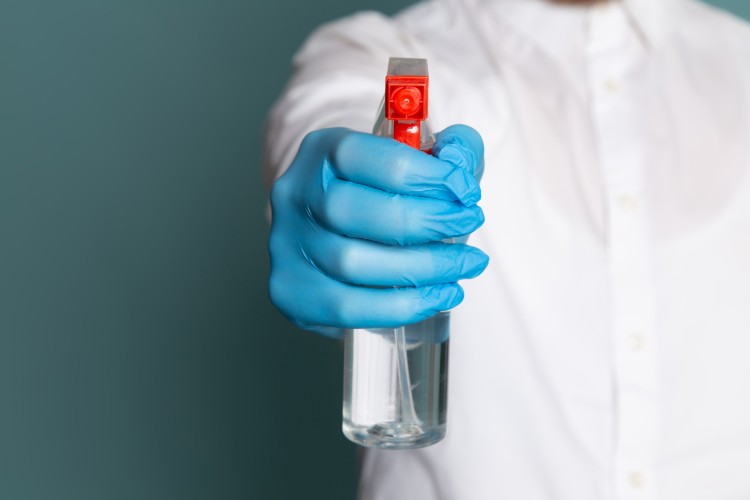Is Hypochlorous Acid Medical Safe? Discover the Facts
Understanding Hypochlorous Acid (HOCl)
Hypochlorous acid (HOCl) is a powerful oxidant used in medical environments. It mimics the substance our white blood cells naturally produce to fight infection. Many healthcare facilities rely on HOCl solutions to clean and disinfect surfaces. But is hypochlorous acid medical safe?

The Science Behind Hypochlorous Acid
HOCl stands out as a highly effective disinfectant. It breaks down cell walls of harmful pathogens, eliminating bacteria, viruses, and fungi. With free available chlorine as its active ingredient, HOCl rapidly destroys microorganisms.
How Is Hypochlorous Acid Generated?
Generating hypochlorous acid requires combining water, sodium chloride (table salt), and an electrical charge. The result is a safe yet effective solution with concentrations ranging from 200 ppm to 500 ppm, depending on its intended use.
Medical Safety and Hypochlorous Acid
Studies confirm HOCl's remarkable safety profile. Unlike chlorine bleach, which produces toxic fumes, HOCl leaves no harmful residue. Its low concentration ensures safety for medical staff, patients, and equipment. Hospitals often use HOCl solutions to disinfect surgical instruments, medical rooms, and even skin without irritation.
Comparing HOCl to Sodium Hypochlorite
Sodium hypochlorite, commonly known as bleach, contains higher chlorine concentrations. While bleach effectively disinfects, it poses risks to respiratory health and surfaces. Hypochlorous acid offers a safer alternative, especially when cleaning sensitive medical areas.
Advantages of HOCl in Medical Settings
· Non-toxic: Safe for direct skin contact
· Fast-acting: Kills pathogens within seconds
· Versatile: Suitable for air, surface, and water disinfection
· Eco-friendly: Decomposes into harmless components
· No PPE Required: Reduces the need for extensive personal protection equipment
What About Adverse Effects?
When used correctly, hypochlorous acid poses minimal risks. Solutions under 500 ppm are gentle enough for skin and wound care. Higher concentrations may cause irritation, but proper dilution ensures safe application.
HOCl’s Role in Fighting Infection
Medical professionals use HOCl to:
· Disinfect surgical tools
· Clean hospital floors, walls, and surfaces
· Treat wounds and skin infections
· Control odor in healthcare environments
Stability and Shelf Life of HOCl Solutions
The shelf life of hypochlorous acid depends on storage conditions. Solutions stored in sealed containers away from direct sunlight last longer. While traditional chlorine bleach remains stable for months, HOCl solutions often maintain potency for several weeks. Manufacturers recommend generating hypochlorous acid on-site for optimal strength.
Electrolyzed Water Technology
Electrolyzed water devices, such as a hypochlorous acid generator, provide a reliable solution for producing HOCl. These machines combine water, sodium chloride, and electricity to create a stable, ready-to-use disinfectant.
Choosing the Right Concentration for Medical Use
· 200 ppm: Ideal for general surface cleaning
· 500 ppm: Suitable for infection control in high-risk areas
Why Medical Facilities Prefer HOCl
Hospitals choose HOCl solutions for their ability to:
· Eliminate harmful pathogens quickly
· Minimize allergic reactions and irritation
· Avoid toxic fumes common with chlorine bleach
Practical Applications in Healthcare
· Dental offices use HOCl to disinfect tools
· Emergency rooms apply HOCl to sanitize critical care units
· Rehabilitation centers use HOCl for surface disinfection without strong odors
Enhancing Personal Protection with HOCl
HOCl solutions strengthen hygiene protocols in healthcare environments. From hand sanitization to respiratory equipment cleaning, HOCl reduces contamination risks. Facilities equipped with HOCl Generator systems ensure consistent supply and quality.
Extending HOCl's Role Beyond Healthcare
Hypochlorous acid excels in various settings beyond hospitals:
· Food Industry: Ensures safe food preparation by disinfecting surfaces
· Veterinary Clinics: Safely cleans animal treatment areas
· Gyms and Fitness Centers: Sanitizes equipment and workout spaces effectively
· Home Care: Ideal for disinfecting kitchens, bathrooms, and frequently touched areas
Environmental Benefits of HOCl
As an eco-friendly solution, HOCl breaks down into water and trace salt. This ensures minimal environmental impact, making it a preferred choice for sustainability-conscious facilities. Unlike chlorine bleach, HOCl doesn’t release harmful gases or residue.
Hypochlorous Acid vs. Alcohol-Based Solutions
While alcohol-based disinfectants evaporate quickly, HOCl lingers longer, improving its ability to eliminate germs. Alcohol-based cleaners also pose risks for individuals with respiratory issues, while HOCl remains gentle on the lungs.
The Future of HOCl in Medical Care
With growing concerns over antibiotic resistance and chemical overuse, HOCl solutions offer a promising alternative. Its versatility ensures continued integration in hospitals, clinics, and care centers worldwide. Medical professionals increasingly view HOCl as a vital tool in maintaining safe, hygienic environments.
Final Thoughts: Is Hypochlorous Acid Medical Safe?
Absolutely. Hypochlorous acid offers unmatched cleaning power while remaining safe for medical use. Its non-toxic profile, powerful oxidizing properties, and fast-acting nature make it an ideal disinfectant for healthcare settings.
